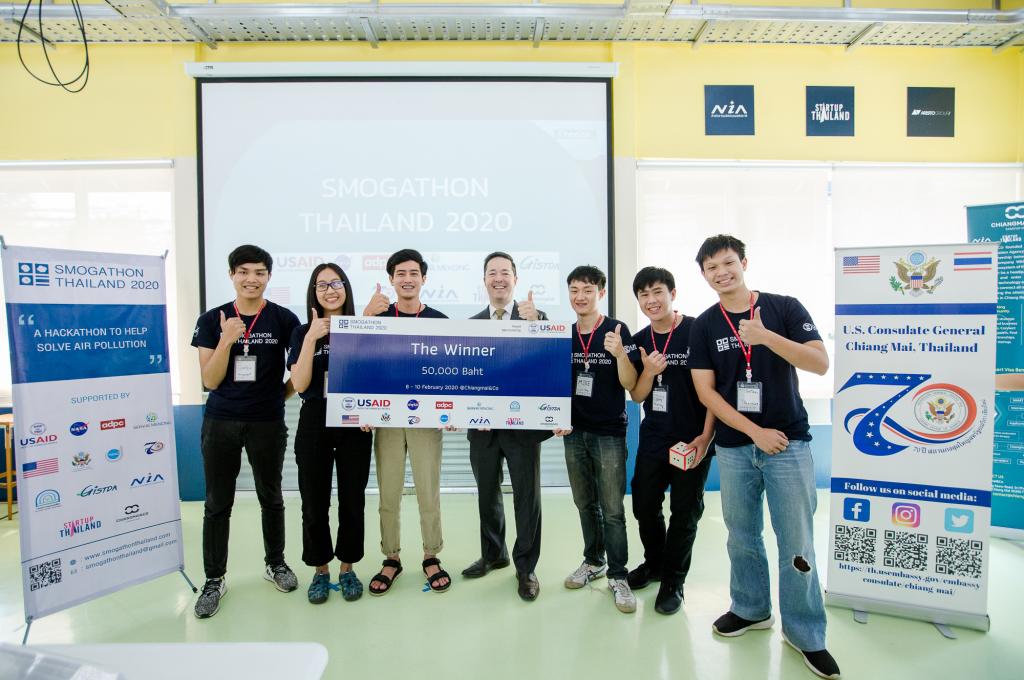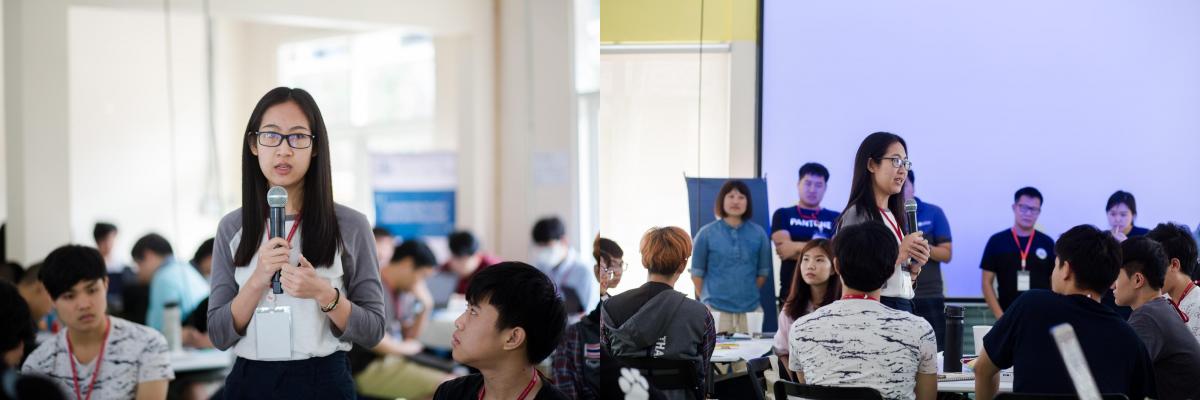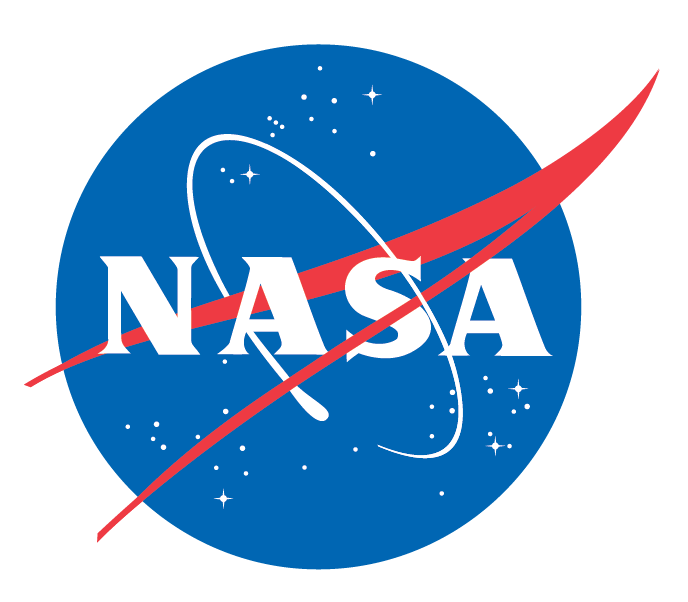Youth tackle air pollution using satellite data

As Thailand’s second largest city, Chiang Mai has been facing the problem of haze pollution over the past decade, due to agricultural practices and rapid industrial growth associated with tourism. Over the past few months, Chiang Mai’s air quality has reached a level that ranked the second worst in the world. For Jureerut Somboon, a native of Chiang Mai and biochemistry graduate from Chiang Mai University, air pollution is an issue that is close to her heart. Through visits with her father to local communities and the countryside, she has experienced first-hand some of the problems associated with agricultural burning―a root cause of the smog in Northern Thailand.
One of the major challenges at the village level is the lack of opportunity communities have to engage with decision-makers. As someone who has relevant experience and knowledge of air pollution, Jureerut decided to apply to the Smogathon Thailand 2020 to express her concerns and to lend a voice to local villagers. This event, organized by the United States Agency for International Development (USAID), the U.S. National Aeronautics and Space Administration (NASA), the Asian Disaster Preparedness Center (ADPC), in collaboration with the U.S. Department of State’s Young Southeast Asian Leaders Initiative (YSEALI), and the Royal Thai Government’s Pollution Control Department (PCD), convened young professionals, students and technical experts and challenged them to develop innovative solutions to tackle air pollution issues through the use of satellite data.
Satellite data is used to monitor smog by identifying forest fire hot spots and agricultural burning so authorities and the public can quickly locate those areas. Satellite-based data and meteorological models monitor and forecast real-time air quality including PM2.5 concentrations, particles that have shown to have short and long term health impacts. Real-time data allow local and national governments to devise preventive measures in advance of poor air days. In addition, satellite images can be used to trace transboundary smog covering large areas.
SERVIR-Mekong, a joint USAID and NASA initiative, uses publicly-available satellite imagery and geospatial tools to assist Lower Mekong governments manage regional air quality issues. The Smogathon Thailand 2020 provided a forum for young professionals and challenged them to find creative solutions using satellite data to address smog in Northern Thailand and beyond.

“I saw this event as a platform where I can act as a bridge between local farmers and decision-makers so they understand each other’s perspectives and perhaps find a common solution,” says Jureerut.
On the first day of the event, Jureerut was able to form a team called ‘No Grant Smog,’ consisting of herself and five others with diverse backgrounds, ranging from engineering to communication arts. The team acknowledged that many young people lack a basic understanding of the air pollution problem and focused their solution on educating the youth. The team agreed they needed an interesting way to tell the story that would appeal to a younger generation. The team was awarded the first prize for developing an idea to create a board game to educate elementary school children about the root causes of air pollution and preventive measures students can take.
Satellite data provided by NASA, with support from SERVIR-Mekong, will enable communities to accurately identify major fire hotspots, educate them on the severity of the issue and the need for an immediate response. The target audience is youth living in communities with ongoing burning problems. If successful, the team hopes to digitize the game into a mobile application to provide broader access to more people affected by smog, particularly in urban areas.
Jureerut is currently a lecturer at the Department of Logistics Management, College of Logistics and Supply Chain at Suan Sunandha Rajabhat University in Chonburi province. After participating in Smogathon Thailand 2020, Jureerut is inspired to continue advocacy work around air pollution and has applied the information learned from the workshop to her teaching.
“This event has ignited my long-lasting passion to work in the environment field. If I decide to further my studies, I would like to focus on integrating environmental solutions in supply chain management. But I might decide to leave academia and work in community based advocacy to really tackle environmental issues such as air pollution hands on,” she added.



